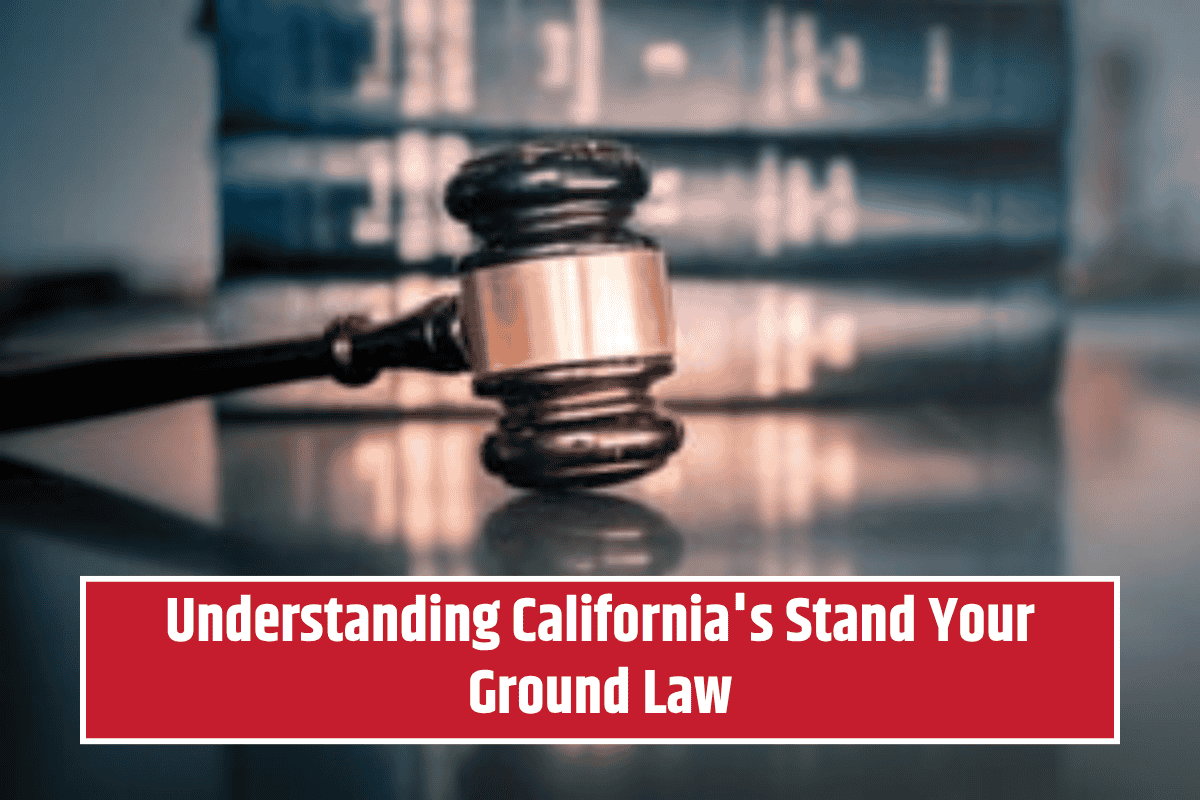Self-defense is a critical legal concept, especially in situations where personal safety is at risk. In California, the law surrounding self-defense can be complicated, particularly when compared to “Stand Your Ground” laws in other states. If you’re wondering about your rights in a dangerous situation—or if you’ve already had to defend yourself—understanding how the law works in California is essential. In this article, we’ll explain the concept of “Stand Your Ground,” how California interprets self-defense, and why legal support is crucial if you’re facing charges related to using force.
What Is a Stand Your Ground Law?
A Stand Your Ground law allows a person to defend themselves without the obligation to retreat first, even if they are outside of their home. Essentially, it means that if you feel reasonably threatened, you can use force—sometimes even deadly force—without needing to back away from the confrontation.
In some states, this law is explicitly written into the books, and it applies in both public and private places, provided the threat is immediate and unlawful. However, the application and limits of Stand Your Ground laws vary by state, and not every state has such a law in place.
Does California Have a Stand Your Ground Law?
Technically, no, California doesn’t have a specific statute titled “Stand Your Ground.” However, California follows many of the principles found in Stand Your Ground laws under its self-defense rules.
Here’s how:
- No Legal Duty to Retreat: In California, there’s no legal obligation to retreat or leave the scene before using reasonable force.
- Right to Protect Yourself or Others: If you’re in a place where you’re legally allowed to be, and you feel that you’re in danger, you have the right to stand your ground and defend yourself or others.
- Reasonable Response: Your response to the threat must be reasonable and proportional to the danger you’re facing.
- Focus on Reasonableness: Instead of a blanket permission to use force, California law examines whether your actions were reasonable based on the specific circumstances.
Key Legal Elements of Self-Defense in California
Self-defense laws in California are built on a balance between protecting individuals and ensuring public safety. Below are the key legal elements to understand when it comes to self-defense:
- Reasonable Belief
You must have an honest and reasonable belief that you or someone else is in immediate danger of being harmed. - Proportional Force
The amount of force you use must match the level of threat. If someone threatens you with a non-lethal weapon, using deadly force in response may be considered excessive. - No Duty to Retreat
If you are in a place where you have a right to be and feel threatened, you don’t have to leave. You can defend yourself right then and there. - Immediate Threat
Self-defense only applies if the threat is happening right now, or if it’s about to happen. It’s not applicable to future threats. - Defense of Others
You can defend another person if you reasonably believe they’re in immediate danger. - Unlawful Aggression
Your right to self-defense only kicks in if someone else acts unlawfully. You cannot claim self-defense if the threat is coming from lawful or harmless actions. - Mistaken Belief
If you mistakenly believe you’re in danger, but your belief is reasonable, you can still be protected under self-defense laws. - Defense of Property
You can protect your property, but you can’t use deadly force just to prevent theft or property damage unless someone’s life is at risk. - Duty to Warn
While not always required, courts may consider whether you gave a verbal warning if it was safe to do so before using force. - Excessive Force
If your response is seen as excessive or unnecessary, you could face criminal charges, even if you initially acted in self-defense.
Why Legal Help Matters in Self-Defense Cases
Using force, even when you believe it’s justified, can have serious legal consequences. Prosecutors and judges will closely examine all the details of your case, including your actions, your intentions, the timing, and whether your response was reasonable. A small mistake or misunderstanding of the law could lead to criminal charges.
This is why having an experienced self-defense attorney is crucial if you’re facing such charges. An attorney can help you understand your rights, present your case effectively, and provide legal support to minimize potential penalties.
At McCready Law Group, Attorney Zack MacCready offers expert legal representation for individuals involved in self-defense cases in areas such as Long Beach, Santa Ana, Fountain Valley, Lakewood, and Cypress Hill. With deep knowledge of California’s legal system, Zack provides clear advice, personal attention, and aggressive defense strategies tailored to your specific case.
While California doesn’t have a specific “Stand Your Ground” law, its self-defense laws provide you with the right to protect yourself if you believe you are in immediate danger. However, the law requires that your response to a threat be reasonable, proportional, and immediate. If you’re unsure whether your actions fall under self-defense or if you’ve been charged with a related crime, it’s essential to consult with an experienced attorney. Understanding California’s self-defense laws is critical in ensuring you are legally protected in any situation where you feel threatened.












